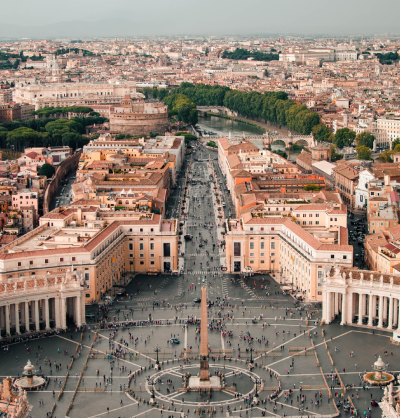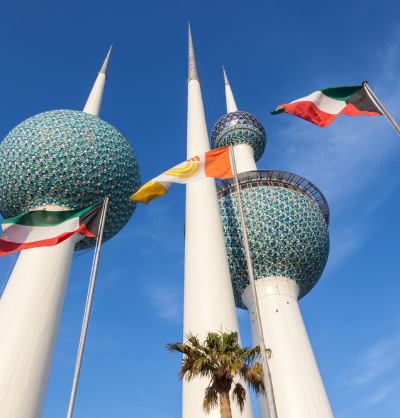Throughout history, the Middle East has been a vital crossroads for East West trade. From the Silk Road to the Suez Canal, commerce flowing from Asia to Europe, and vice versa, has long had to make its way through the region. More recently, trade with the Middle East itself has, in its own right, also become important for Europe and the West. Since the development of oil fields across the region in the 1930’s, Middle Eastern countries have provided an important source of energy for Europe. Today, more than 20% of the European Union’s (EU) crude oil and around 6% of its gas needs are supplied from the Middle East, with both Iraq and Saudi Arabia leading the energy export market in the region.
Additionally, just over a billion tonnes of goods pass through the Red Sea and Suez Canal at the heart of the region, taking cargo from Europe to the Asian Market, and transporting finished products from Asia back again. Since its completion in 1869, this global commerce artery has been essential for cutting travel times between Europe and their trading partners in the Indian Ocean. As such, these trade routes are of vital strategic importance, not just for the EU, but for the nations of the Gulf, who maintain close economic ties with their European partners. This has become increasingly relevant, as both the region and global supply lines face, once again, increased external pressures.
While focus tends to be on dealing with issues such as external tariff barriers and economic sanctions, which usually result in the cost being passed on to the end consumer, the other category of threat posed to trade in the region, that of physical obstructions to routes, has a much higher economic impact. In a new report for New Direction Foundation, I have explored the increased pressures being put on global trade routes, including three areas of importance to the Gulf states: protection of red sea access to the Suez Canal from Iranian and Chinese presence, defence of the Strait of Hormuz against state backed kidnappings, and the fight against piracy in the Horn of Africa.
One such event drew the attention in early 2021, when the container ship Ever Given managed to become wedged across the width of the Suez Canal, leaving 300 vessels, holding a total of 16.9 million tonnes of deadweight (the overall capacity of goods), waiting to transit. The economic damage was estimated by Lloyds list, a division of the insurance company Lloyds of London, to have been in the realm of $9.9 billion a day over six days. The incident demonstrated both how dependent Europe and Asia are on the Suez Canal, and how vulnerable the passage is at the same time.
This episode begs the question, what were to happen if a hostile power in the region were to equally decide to block the canal. In an earlier article for the Euro Gulf Information Centre, I set out the risk posed to this supply route by external actors, such as China and Iran, who have increasingly established themselves in the region on opposite sides of the Bab-el-Mandeb strait going into the Red Sea.
Simultaneously, the threat to maritime trade also looms on the other side of the Arabian Peninsula. The Iranian regime has spent many years obstructing the flow of trade through the notoriously difficult to navigate Strait of Hormuz. In 2019, evidence emerged of the regime deploying a new tool as a means of drawing ships into their territorial waters in order to justify boarding them. The Iranian Islamic Revolutionary Guard Corps (IRGC) has allegedly begun to deploy GPS ‘Spoofing’ technology, which tricks the navigational systems of the ships into believing they are still on course, when in reality drawing them into hostile waters. This is believed to be what was deployed against the British oil tanker Stena Impero when it was seized by the IRGC in September 2019. The vessel was only released after the British government agreed to set free an Iranian tanker which was illegally transporting oil to Syria, stopped earlier in the Strait of Gibraltar.
In having a commanding position over the Strait of Hormuz, the Iranian regime is in a prime position to extort concessions from those countries dependent on access. With 20% of the EU’s crude oil supplies flowing through the straits, both Europe and the Gulf States are at a high risk, especially now that US energy interests have increasingly shifted away from the Middle East.
In order to protect trade in the region, the states in both the Gulf and Europe need to enhance their cooperation. On top of the agenda should be containing the threat from Iran and its proxies across the region, with the priority of restricting Ansar Allah’s (re: the Houthi militia) power consolidation in Yemen, which, in geopolitical terms, would provide Iran with naval basing opportunities on both sides of the Arabian Peninsula, giving them the ability to blockade both the Hormuz and the Bab-el-Mandeb straits.
A model of cooperation in tackling this threat would be for GCC countries to consider joining the International Maritime Security Construct (IMSC) led by the United States (US) and the United Kingdom (UK), something that Bahrain, Saudi Arabia, and the United Arab Emirates (UAE) already do. Structured cooperation through multilateral frameworks to engage the Gulf states on equal ground with Western states will help secure the region while ensuring their strategic alignment against other collective challenges such as those posed by Iran.
The 2020 Abraham Accords has made this type of structured cooperation easier, as states such as the UK, US and Germany – which maintain close relations with Israel and the Gulf — can now encourage strategic alignment across the board. France is another key partner, especially after the expansion of their naval presence in the UAE, which is crucial for European operations in the region. However, significant differences over how to deal with the threat from Iran remain, as commercial interests and the efforts to safeguard the Iran Nuclear Deal continue to push some European countries towards détente.
Enhanced cooperation would serve three vital purposes: to defend the free flow of trade in goods and resources between the Middle East and the West, contain Iran and bolster relations between the various shareholders. Although this brief work does not deal with these in detail, any evaluation of budding cooperative relations that bridge the Euro-Gulf geopolitical space simply cannot ignore them.
* Senior Policy Advisor at New Direction Foundation for European Reform in Brussels. He previously worked on Counter Terrorism and Foreign Policy in the European Parliament.








